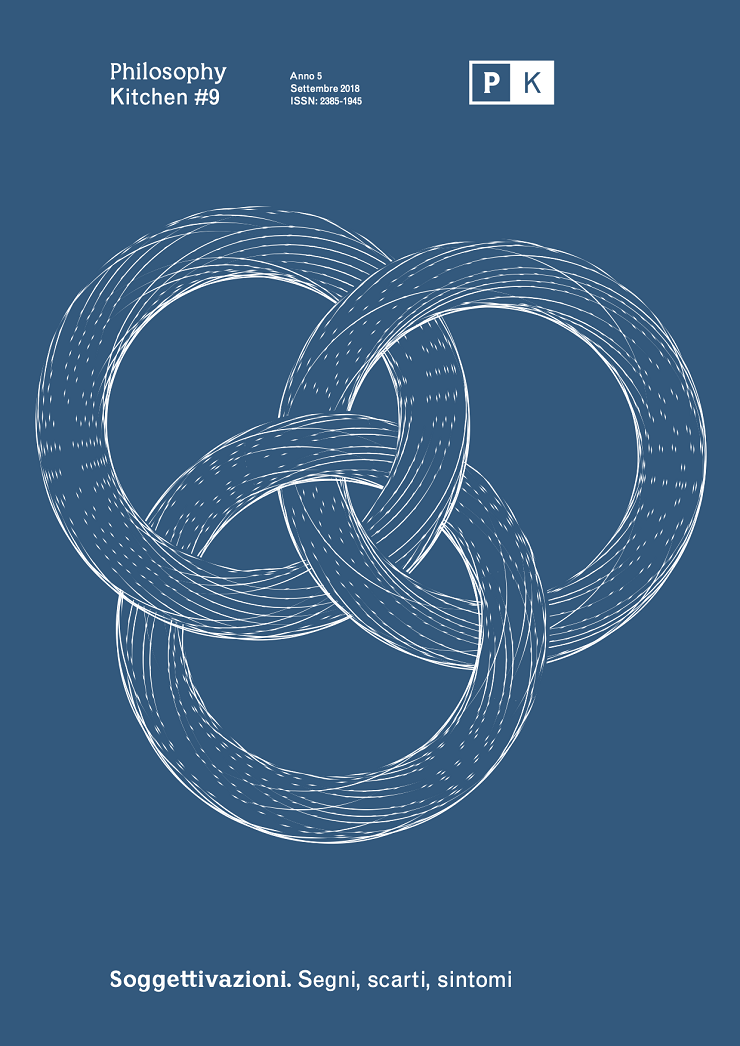The Transcendental Origins of the World. For a Topological Ontology of Reality
DOI:
https://doi.org/10.13135/2385-1945/3965Abstract
In this work we analyze the concept of real in Jacques Lacan’s thought, in order to consider it as the transcendental and pre-human origin of the subject and his empiric world.This attempt is in order to catch a particular space which could explain the real of subjectivity in terms of what Jacques Lacan calls extimité. In fact, by using topology and its exemplary figures, we can try to understand the functioning of real as an empty space in the middle of the subject. More specifically, for the purpose of reaching a primordial and original real for the subject, we have to consider several issues of this concept in Lacan’s thought: out of logical sense, we’ll see how the real is not attributable to any signification system. Furthermore, the real arises to the subject in terms of trauma; we can’t say anything sensible about the real, but we can only meet it. In other words, the real is uniquely undefinable. Ultimately, in order to see how the paradigm of the concept of transcendental have been changing from Kant’s philosophy since nowadays, we’ll try to justify the thesis under which the real shows an inhuman core in the middle of the human subjectivity.





